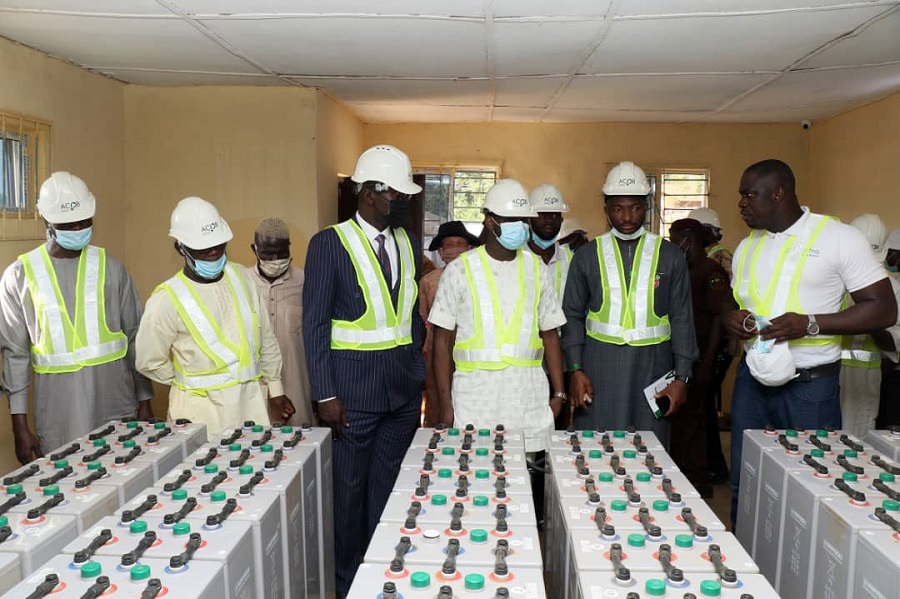In a bid to provide remote communities with clean and affordable energy, the Rural Electrification Agency under the aegis of the Federal Ministry of Power has delivered 100kWp Solar Hybrid Mini-Grid designed to adequately serve off-grid community in Ogun state.
This was disclosed by the agency in a tweet which was issued via its official Twitter handle today.
READ: FG to inject over N198 billion on capital projects in power sector in 2021
https://twitter.com/realREANigeria/status/1332083265067507713?s=19
The Rural Electrification Agency disclosed that the intervention of the Solar Hybrid Mini-Grid to the community was successfully delivered under Rural Electrification Fund (REF).
The Executive Director, REF, Sanusi Ohiare encouraged the indigenes to optimise the impact of this intervention while using this access to clean, safe and reliable energy productively.
READ: Plan to overhaul Nigeria’s Power grid attracts investors – Siemens
However, the Managing Director of Rural Electrification Agency, Mr. Ahmad Salihjo, while sharing his remarks, explained to the community members that he strongly believes that the quality of lives will be improved and children will have better learning experiences with access to reliable electricity in Olooji community.
Mr. Ahmad commended the community for their cooperation with the REA team and the Mini-Grid developer Acob Lighting Technology Limited.
READ: EFCC gives reason for unspent N4 billion in 2020 budget
What you should know
Recall that Nairametrics reported on November 12, 2020, that the Federal Government through its implementing Agency, Rural Electrification Agency (REA), commissioned a 100KW solar hybrid mini-grid power plant in Ebonyi State.
The Agency disclosed that the completed project is in line with the government’s mandate, as the present administration seeks to provide remote communities with clean and affordable energy, through strategic investment in the deployment of Mini-grid systems that will provide power for 5 million homes in 2021.
Explore Data on the Nairametrics Research Website











